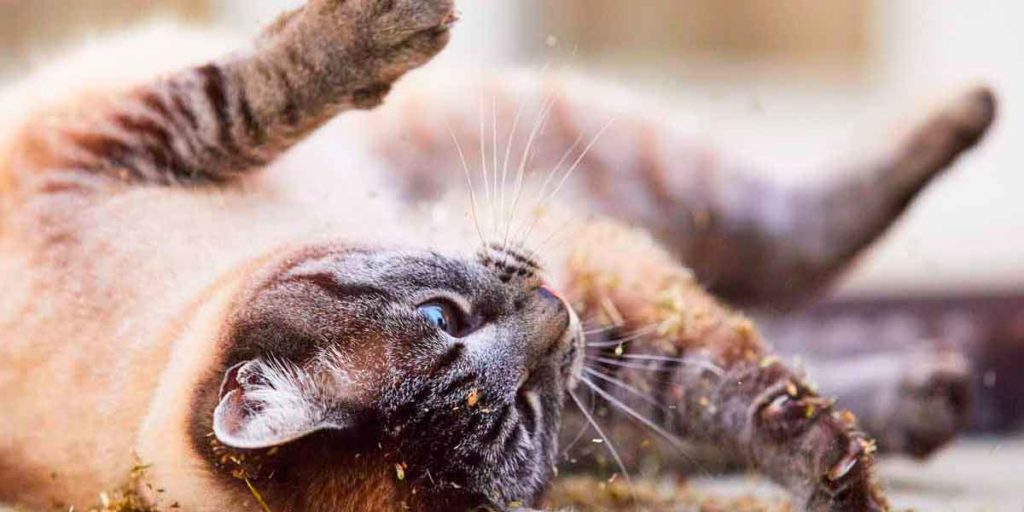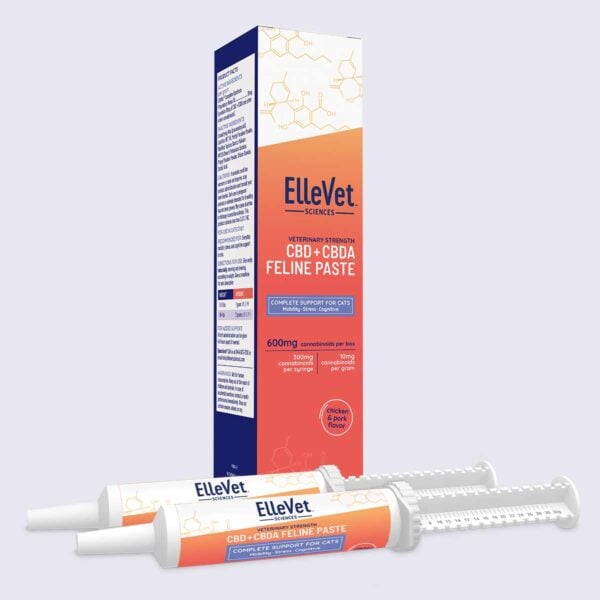If you’ve ever seen a cat zoom around the room, meow, and roll around with catnip, you know what an entertaining and seemingly enjoyable experience it can be for our feline friends. Catnip, sometimes referred to as catmint, catwort, or field balm, is a fragrant member of the mint family and some cats can’t seem to get enough of it. Originally from Europe and Asia, Nepeta cataria is known to have a euphoric effect on some felines. But is it safe? And why do some cats like it so much while others don’t?
Table of contents
Is catnip safe?
Catnip is considered non-addictive and completely safe for cats. There is no evidence of the long-term effects of the aromatic herb on these animals. However, feline parents should be mindful of too much of even a good thing—while cats can’t overdose on catnip, too much can cause digestive upset. Eating an excessive amount of catnip can lead to vomiting and diarrhea.
How does it work?
Taste and smell
Cats have a powerful sense of smell, aided by their extra scent gland in the roof of their mouth that carries scents from their mouth and nose directly to their brain. It’s the strong smell that attracts most cats to catnip, not the taste, but the herb can be both sniffed and eaten. In fact, the herb also works differently in your cat’s body depending on how they are interacting with it. Sniffing tends to be associated with the wild, energetic response while eating catnip is more likely to mellow out your feline friend and help them sleep.
When you see your cat getting excited about catnip, it’s because they have picked up on the plant’s nepetalactone, a chemical compound found in catnip’s aromatic essential oil. While most cats enjoy catnip both dried and fresh, the latter is more potent than the dried form.
It’s only natural
Researchers suspect that catnip targets kitty “happy” receptors in the brain and mimics feline sex hormones. This results in a sexual response from the cat in which they are reacting to an artificial feline pheromone. This response isn’t dependent on your cat’s reproductive ability, however—spayed and neutered cats react to the herb the same way non-sterilized pets do.
Not for every cat
Catnip sensitivity is hereditary. About one in two cats inherits a sensitivity to the herb. Kittens and young cats will not likely respond to catnip until they’ve reached maturity, which means you won’t know if your cat has the catnip gene for the first three to six months.
How will catnip affect my feline friend?
Zoom around or zone out
Most cats react to catnip by rolling around in or rubbing up against the plant. More active or even hyperactive reactions can be similar to the behaviors of a female feline in heat. They may jump, flip, zoom around the house, vocalize, or salivate. As previously mentioned, some cats may also or alternatively zone out and become very calm and relaxed.
Comes in waves
Reactions to catnip are temporary but vary in length depending on the cat. Short-lived yet intense bursts of hyperactivity and playfulness usually last about 10 minutes. After that initial exposure and pleasure passes, cats actually become briefly immune to the effects of the herb. It may take as long as two hours for your cat to “reset” and become susceptible to catnip again.
Using catnip at home
Enrichment
Given cats’ strong response to catnip, the herb can be a powerful enrichment tool or training aid for feline parents. Indoor cats, for example, often need a little extra stimulation to keep them mentally and physically active and satisfied. Similarly, for cats who tend to be less active, catnip toys can encourage play and exercise. Getting your feline friend mentally and physically engaged can lead to happier, healthier living.
Training
Want to keep your kitty from clawing furniture? Using catnip on scratching posts can attract your feline friend to a more appropriate place for their natural but destructive behavior. The same can be done if you just bought your fluffy friend a new bed or toy that you’d prefer they use—sprinkle or rub catnip on the new item to pique your cat’s interest. You can even “marinate” items in dried catnip!










